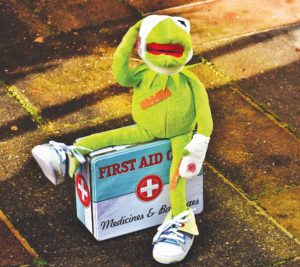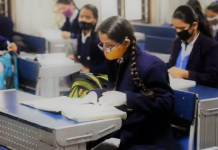 The comprehensive First Aid and Cardio-Pulmonary Resuscitation (CPR) manual vividly explains how to respond to emergencies. It explains that one should always have the first aid kit handy and well stocked at home, car and workplace. It should periodically regularly be inspected. It tells that one should always be willing to act and not hesitate to get involved in an emergency.
The comprehensive First Aid and Cardio-Pulmonary Resuscitation (CPR) manual vividly explains how to respond to emergencies. It explains that one should always have the first aid kit handy and well stocked at home, car and workplace. It should periodically regularly be inspected. It tells that one should always be willing to act and not hesitate to get involved in an emergency.
Don’t hesitate to volunteer
The most common reason why people don’t want to get involved in an emergency is the bystander effect thinking that someone else will look after the person. However, one should never assume that someone would take action. Offer to help in any way you can. Then some look t unpleasant injuries or illnesses thinking, “That makes me feel sick!” Close your eyes or turn away for a moment.
To calm yourself, then deal with the situation. Also there is fear of catching a disease: “I don’t want to get sick!” Taking simple steps, such as wearing gloves, will limit the risk of catching a disease. Also the fear of doing something wrong or causing more harm: “What if I make the person worse?” The most harmful thing you can do is nothing at all.
Avoiding legal hassles
To avoid legal hassles the First Aiders must: get permission, if possible, before giving care, give only the care they were trained to provide, continue giving care until another trained person takes over, they are too exhausted to continue, the scene becomes unsafe, or the person’s condition improves and care is no longer required. Then you must get permission (consent) before giving care. For an unresponsive person, the law assumes you have permission. For a young child without a caregiver, provide care. We have a duty to report child abuse or neglect. If you think a child is being harmed, then a report to child protection and/or the police needs to occur.
Role of First Aider
Your Role as a First Aider
- Recognize the emergency. 2. Protect yourself and others. 3. Access help (one of the simplest and most important ways of providing first aid). 4. Act according to your skills and training. Call the Emergency Medical Services if there is a danger to you or others or if a person:
◆ Is not easily accessible.
◆ Is unresponsive or has an altered mental state.
◆ Is not breathing normally.
◆ Has persistent chest pain or pressure.
◆ Has life-threatening bleeding.
◆ Has a seizure.
◆ Has a head, neck, or spinal injury.
◆ Has an apparent mental health crisis.
One should always remember the fundamental principals of humanity to bring assistance without discrimination to the wounded on the battlefield, endeavors, to prevent and alleviate human suffering wherever it may be found.
Its purpose is to protect life and health and to ensure respect for the human being. It promotes mutual understanding, friendship, cooperation and lasting peace amongst all peoples. One should not make any discrimination as to nationally, race, religious beliefs, class or political opinions.
It endeavors to relieve the suffering of individuals, being solely by their needs, and to give priority to the most urgent cases of distress. In order to enjoy the confidence of all, one may not take sides in hostilities or engage in controversies of a political, racial, religious or ideological nature. One must maintain autonomy, unity and universality and consider this as a voluntary service without a desire for gain.
letters@tehelka.com













